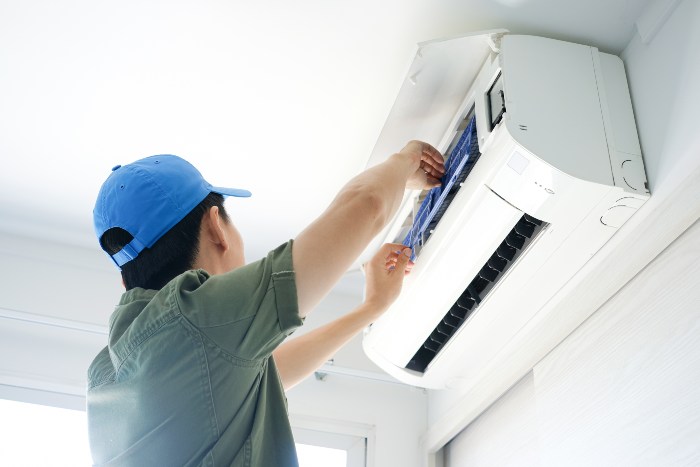
Heating, Ventilation, and Air Conditioning (HVAC) systems play a critical role in maintaining comfort and indoor air quality in homes and commercial buildings. Regular maintenance and timely repairs are essential to ensure the efficient operation of HVAC systems. Here are key aspects of HVAC repair and maintenance:
- Regular Maintenance:
- Regular HVAC maintenance is crucial for the system’s performance and longevity. This includes tasks such as cleaning or replacing air filters, inspecting ductwork, checking thermostat settings, and lubricating moving parts.
- Seasonal Checkups:
- HVAC systems should be inspected and maintained at least twice a year—typically before the heating season and before the cooling season. This helps address potential issues before the system is heavily used.
- Air Filter Replacement:
- Clean or replace air filters regularly. Clogged filters can restrict airflow, reduce efficiency, and lead to increased energy consumption. Dirty filters can also negatively impact indoor air quality.
- Thermostat Calibration:
- Ensure that thermostats are calibrated correctly to maintain consistent temperatures. Programmable thermostats can be set to optimize energy efficiency based on daily and weekly schedules.
- Ductwork Inspection:
- Inspect and clean ductwork to remove dust, debris, and potential contaminants. Leaks in ducts should be sealed to improve energy efficiency.
- Checking Refrigerant Levels:
- For air conditioning systems, it’s important to check refrigerant levels. Low refrigerant levels can reduce system efficiency and affect cooling capacity.
- Inspecting Electrical Components:
- Regularly inspect electrical components, such as wiring, capacitors, and contactors. Faulty electrical components can lead to system malfunctions or breakdowns.
- Cleaning Condenser and Evaporator Coils:
- The condenser and evaporator coils can accumulate dirt over time, affecting heat exchange efficiency. Regular cleaning helps maintain optimal performance.
- Lubricating Moving Parts:
- Lubricate moving parts, such as fan motors and bearings, to reduce friction and prevent premature wear and tear.
- Inspecting Gas Connections:
- For heating systems, it’s essential to inspect gas connections, burners, and heat exchangers. Any issues with gas components should be addressed promptly for safety reasons.
- Checking Exhaust Outlets:
- Inspect exhaust outlets for heating systems to ensure proper ventilation. Blocked exhaust outlets can pose safety hazards.
- Scheduling Professional Inspections:
- While there are tasks homeowners can perform, it’s advisable to schedule professional HVAC inspections and maintenance at least annually. Certified technicians can identify and address issues that may not be apparent to the untrained eye.
- Emergency Repairs:
- Addressing HVAC issues promptly is crucial, especially during extreme weather conditions. Emergency repairs may be necessary for issues like system breakdowns, gas leaks, or refrigerant leaks.
- Energy Efficiency Upgrades:
- Consider energy-efficient upgrades, such as installing programmable thermostats, upgrading insulation, or replacing older units with more efficient models, to save on energy costs.
Regular HVAC maintenance not only helps prevent breakdowns but also improves energy efficiency, extends the lifespan of the system, and enhances indoor air quality. When it comes to repairs, it’s essential to rely on qualified Air Conditioning Repair in Santa Ana CA professionals to diagnose and fix issues accurately.



